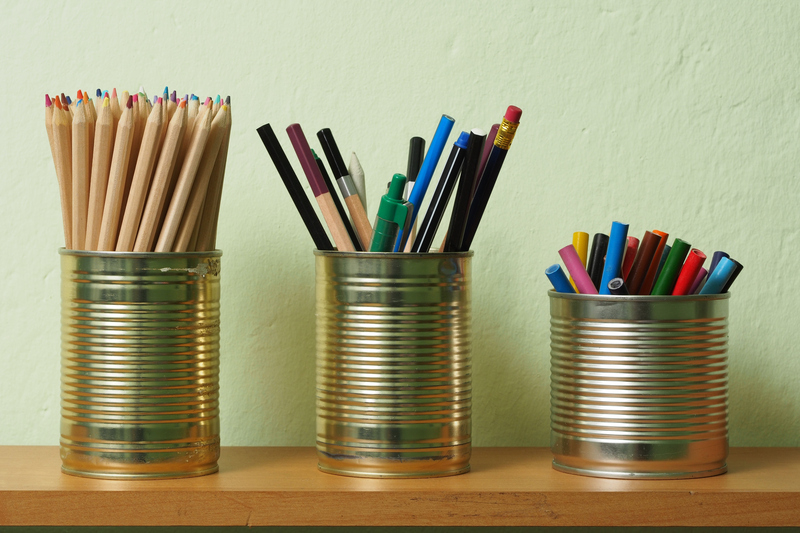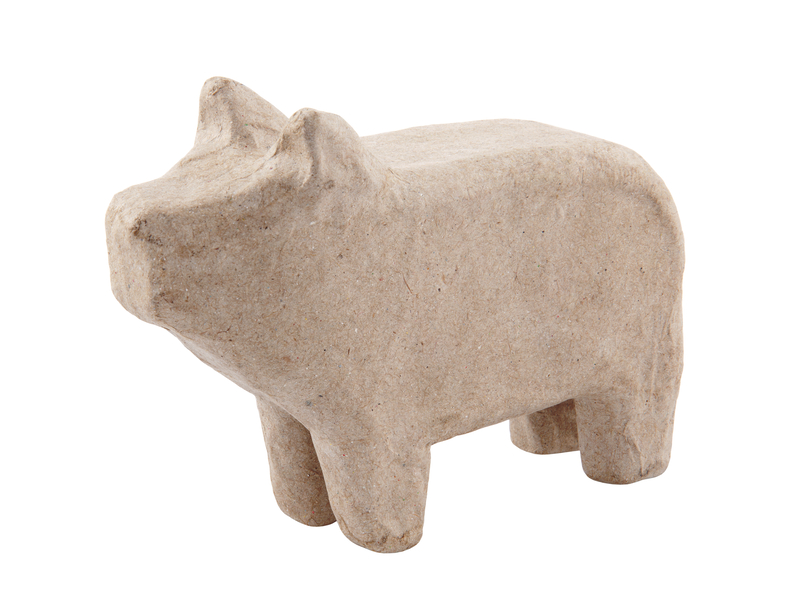How to Save Money Disposing of Bulky Waste Items
Getting rid of large, unwanted items can often be stressful, time-consuming, and--more than anything--expensive. Whether you're moving, renovating, downsizing, or simply decluttering, finding cost-effective ways to dispose of bulky waste items is essential. In this comprehensive guide, we'll explore the best strategies and tips on how to save money disposing of bulky waste items. Learn how to stay within your budget, follow eco-friendly practices, and achieve a clutter-free space without breaking the bank.
Understanding Bulky Waste and Its Challenges
Before exploring money-saving tips, it's important to define bulky waste items. These are larger household items that don't fit in standard rubbish bins. Examples include:
- Old furniture (sofas, beds, wardrobes, etc.)
- Household appliances (fridges, washing machines, stoves)
- Mattresses and bed frames
- Carpets and rugs
- Garden equipment or large outdoor toys
- Construction debris (old bathroom suites, doors, cabinetry)
The main challenge with disposing of such items lies in their size, weight, and the local regulations around their disposal. Standard waste collection services usually do not accept them, and special disposal can be costly. Understanding these factors is key to finding the most economical approach.

Utilize Your Local Council's Bulky Waste Pickup
Find Out If Your Municipality Offers Free or Low-Cost Collection
Many cities and towns offer a bulky item collection service, which is often far more affordable than hiring a private hauler. The process typically involves booking a collection date, placing your items at the curb, and letting the municipal team handle the removal.
Money-saving tips:
- Check if there's a free annual pickup. Some areas offer one or two free bulky waste collections per year.
- Pool resources with neighbors. If there's a fee, you may be able to split costs by coordinating bulk disposal with neighbors.
- Prepare items correctly. Make sure items are dismantled or sorted as required; improper preparation can result in extra fees.
Schedule Ahead to Avoid Extra Costs
Bulky waste pickups may need to be scheduled weeks in advance. Plan your disposal well ahead of deadlines--especially if you're moving or renovating--to avoid last-minute, expensive solutions.
Embrace the Power of Reuse: Sell or Donate Large Items
Disposing of large items doesn't always mean throwing them away. Often, one person's waste is another's treasure. Selling or donating your unwanted items not only keeps them out of landfills but can save you significant disposal fees and sometimes even make you money.
Where to Sell or Give Away Bulky Items
- Online Marketplaces: Facebook Marketplace, Craigslist, Gumtree, and eBay are excellent places to sell or give away large items locally. Many people look for free furniture and appliances online.
- Charity Shops: Many local charities accept large items if they're in good condition. Some, like the British Heart Foundation (UK), Salvation Army, or Habitat for Humanity ReStore, might even collect items for free.
- Community Groups: Websites like Freecycle or Nextdoor connect you with people in your area looking for free items.
- Donation Drives: Some municipalities or schools organize bulky-item donation events throughout the year.
Tips for success:
- Be honest about item condition.
- Take clear photos and include dimensions to attract more interest.
- Arrange for contactless pickup when possible (leave items at the curb for someone to collect).
This approach minimizes your disposal costs and helps others in need. You may even get a tax write-off by donating to registered charities!
DIY Disposal: Save by Doing Some of the Work Yourself
Sometimes you need to clear space quickly. If you're physically able and have access to transportation, do-it-yourself solutions can save a great deal of money when disposing of bulky waste items.
Transport Items to the Local Tip or Recycling Center
Most towns have a household waste recycling centre (HWRC) or public dump where residents can drop off bulky waste, often at low or no cost. Here's how to do it efficiently:
- Check opening hours and accepted items. Not every center takes all materials.
- Sort items by category (metal, wood, electronics) to speed up your visit and allow for proper recycling.
- Borrow or rent a van or trailer if you don't have a vehicle large enough.
Tip: Invite friends, family, or neighbors to join you on your run to the recycling centre and split fuel and rental costs!
Break Down Items First
The smaller the components, the easier they are to transport and recycle. Disassemble furniture, remove metal from wooden frames, and flatten boxes or plastics. Proper separation can sometimes reduce or eliminate disposal fees.
Special note: Some recycling centers may charge for specific items like mattresses, tyres, or refrigerators, so always check the list of free and chargeable items before your visit.
Hire a Skip Only as a Last Resort
While convenient, hiring a skip (dumpster) can be one of the most expensive ways to dispose of large quantities of waste. If you need a skip for a renovation project, here are tips to minimize costs:
- Estimate your waste volume accurately so you don't overpay for unused capacity.
- Share a skip with neighbors or nearby businesses who may also need to dispose of bulky items.
- Compare prices online and haggle--many companies match or beat competitors' quotes.
- Follow disposal rules. Contamination or banned items can incur heavy fines or extra charges.
Consider Man & Van Bulky Waste Removal Services
Man and van services are an affordable, flexible alternative for disposing of bulky rubbish items when you can't move them yourself. These services often charge by volume or item and help with loading and removal.
Tips for getting the best deal:
- Request quotes from several providers--in writing--and ask for details on what's included (loading, labor, disposal fees).
- Be accurate about your load. Overestimating means you pay too much; underestimating can mean surprise fees.
- Book outside peak times--mid-week or off-season slots may cost less.
This solution is great for those unable to move items alone but wanting something less costly than a full-service junk removal company.
Leverage Appliance and Furniture Retailer Take-back Schemes
If you're replacing an old appliance or purchasing new furniture, check if the retailer offers a take-back or old item removal scheme. Many companies will dispose of your old goods for free or a nominal charge when delivering the new items.
- Always inquire about removal schemes at checkout; these services can be significantly cheaper than arranging your own disposal.
- Electronics and appliance stores frequently offer environmentally friendly recycling options--especially for fridges, TVs, and washing machines.
Tip: Some retailers even provide disposal free of charge as part of promotional offers!
Look for Community Clean-Up Events
Many communities host annual or semi-annual clean-up days, when local governments arrange for free or discounted collection of bulky household waste. These events can save you time and money and sometimes include disposal of hazardous materials or special items like electronics.
Stay informed by:
- Following your town or city's waste management department on social media
- Checking local noticeboards, newsletters, and community centers for event announcements
- Signing up for alerts from recycling or environmental groups in your area
Avoiding Fines and Hidden Disposal Costs
Improper disposal of bulky waste can result in hefty fines and additional expenses, quickly turning a "cheap" solution into an expensive mistake. To save money and avoid penalties, remember:
- Never dump items illegally. Fly-tipping is not only bad for the environment but can also result in hundreds or thousands in fines.
- Always check what your local recycling center accepts, and whether booking or ID is required.
- Dispose of hazardous materials (e.g., electronics, paint, batteries) at approved facilities.
Eco-Friendly and Cost-Effective: Upcycling and Repurposing Bulky Items
Before you pay to throw something away, consider if it has a second life. Upcycling--transforming unwanted large items into something new or useful--can be both environmentally friendly and cost-saving.
- Turn old pallets into garden furniture or compost bins.
- Refinish or paint wooden desks and dressers for use in another room.
- Convert old doors and windows into home decor pieces.
There are countless DIY tutorials online for creative reuse. Repurposing not only saves you disposal costs but can also add personalized flair to your home or garden.

Summary: The Best Ways to Dispose of Bulky Waste Items on a Budget
To recap, effective and cheap bulky waste disposal requires a bit of planning, resourcefulness, and community awareness. Here's a quick checklist for saving money while disposing of large, unwanted materials:
- Check local council and municipal programs for free or low-cost pickups
- Sell, donate, or give away usable items to save on disposal costs
- Consider DIY transport to local recycling centers
- Break down items for easier transport and potential free disposal
- Use skip hire or commercial removal services only when necessary
- Look for retailer take-back or haul away programs when buying replacements
- Participate in community bulky-waste collection days
- Stay compliant with laws and avoid illegal dumping
- Explore upcycling and creative reuse before disposing
With these tips, you can effectively save money disposing of bulky waste items, contribute to environmental sustainability, and declutter your space--all without unnecessary expenses. Next time you're facing a mammoth clear-out, come back to this guide and choose the methods that work best for your situation and pocket!
Frequently Asked Questions
How can I dispose of bulky waste for free?
Check if your local municipality offers free bulky waste collection, donate or sell items online, or participate in community cleanup events.
What is the cheapest way to get rid of large furniture?
The lowest-cost option is to give away or sell items directly. If they are unusable, drop them off at a local recycling center or use council collection schemes.
Are there charities that collect bulky waste?
Yes, organizations such as the British Heart Foundation, Salvation Army, and Habitat for Humanity ReStore often collect and recycle or resell bulky household items.
If you're dealing with bulky waste, remember: look for all available options, plan ahead, and don't pay for services you might get for free. Your wallet--and the environment--will thank you!
